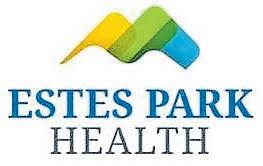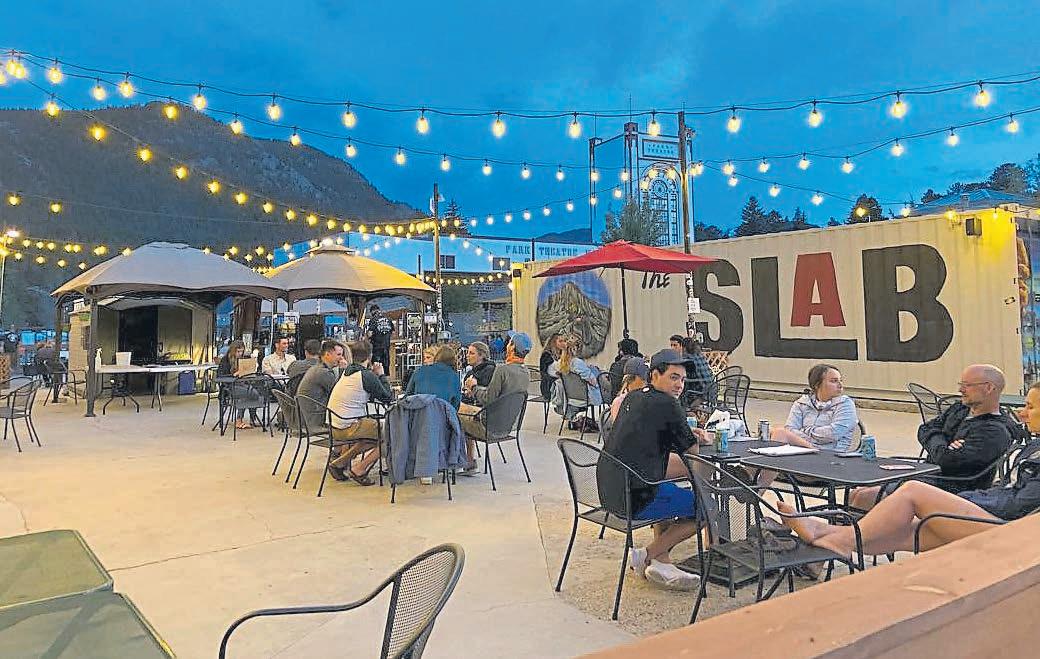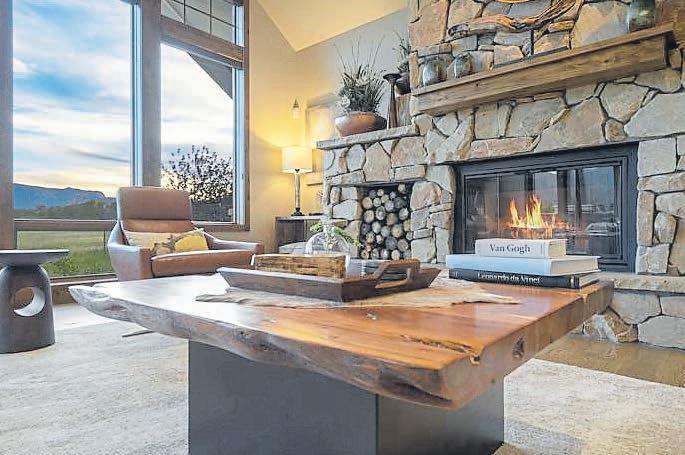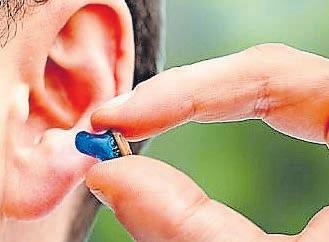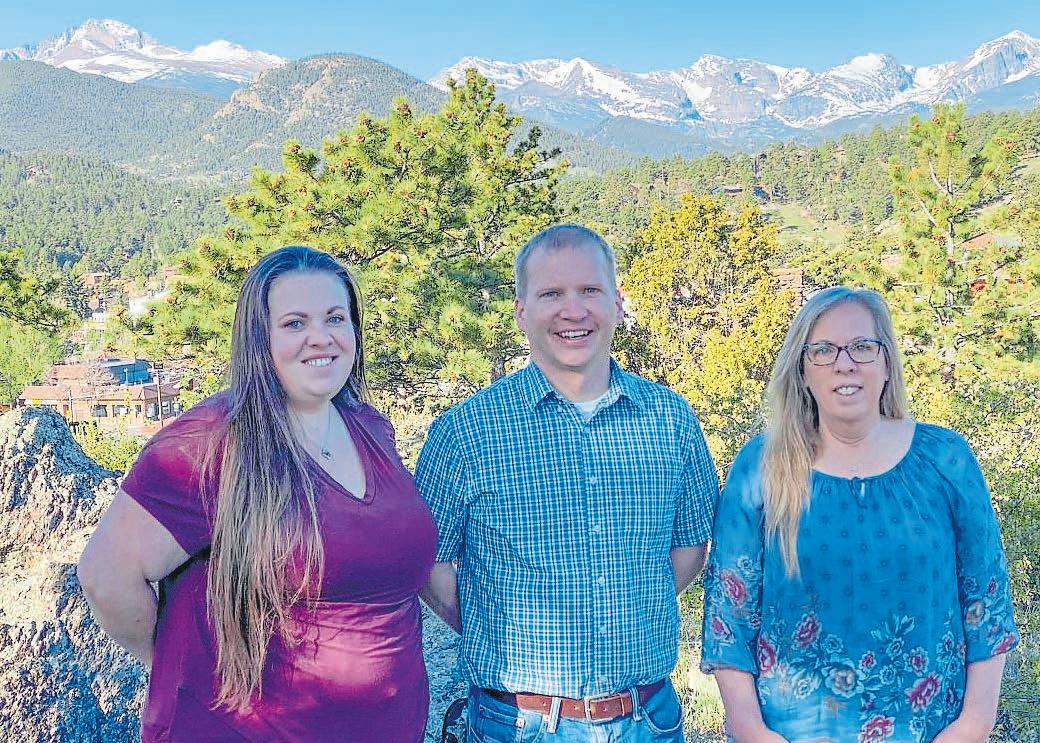
5 minute read
Well
HANDLING FINANCES WELL
Financial wellness in uncertain times
By Ryan Bross, Bank of Colorado Vice President
For the Trail-Gazette
“Ifyou want to be rich, learn not only to earn but also to save money.”– Benjamin Franklin
We can always count on Mr. Franklin to make things sound easy. Even in the best of times, most of us could find a place to put “extra” money. The current economic uncertainty makes knowing and understanding your finances even more necessary. Below are some ideas
Ryan Bross that I think always make sense but may be more important now than ever.
First, if you don’t already have one, make a budget and
SAFE,AFFORDABLE, CBD
CBDepot is your partner in wellness for you, your family, and pets. With convenient locations in Fort Collins, Loveland, and Estes Park as well as a streamlined online shopping experience, our goal is to provide you the highest quality, and most diverse options of hemp derived products in a comfortable setting.
Order Online - Ship to Home or Consult with our Helpful staff in-store 137 W Elkhorn Ave, Estes Park, Co Now Open until 8 p.m. on Friday, Saturday, and Sunday! CBDepotCo.com | 970-586-4780 Instagram @cbdepotco Facebook @cbdepotfoco

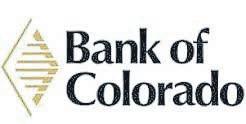
fill out a personal financial statement. Your budget will tell you what income you have coming in and what expenses you have going out. The financial statement will show you what you own (your assets), what you owe (your liabilities), and the difference between the two (your net worth).
For most of us, spending less than you earn and living below your means is a necessary part of life. Easily accessible cash on hand helps you absorb unexpected expenses and gives you some security in the event of a loss of income. Conventional wisdom usually recommends an emergency fund of 3-6 months of expenses. That is a big hurdle for many, but any balance is a start. The right number is one that lets you sleep at night.
While you are at it, look at the expenses on your budget to see where your money goes. Some expenses that we tend to think of as necessary are optional, and if reduced or eliminated would free up funds for a rainy day.
What kind of debt do you have? Credit cards, auto loans, a mortgage? Would it be beneficial to consolidate? Credit cards are never a good source of long-term funds, as the rates tend to be higher than other types of debt. If you own a home, it may make sense to refinance and reduce your interest rate, and potentially consolidate other debt. If you do, don’t go out and re-leverage, put the savings aside.
Or it might make sense to reach out to your current lender (if they haven’t already reached out to you) to discuss a modification or deferral. Many lenders have put programs in place to assist customers during the current environment, and if your account is in good standing, they would most likely be happy to assist you. Make sure that you are aware of how any modification or deferral will affect your future terms, you don’t want to be surprised later.
I amabig believer in saving for retirement, so if you are currently contributing to a 401K, I RA or other type of retirement account, it makes sense to continue if you can afford to do so. These shouldn’t be used as your emergency fund, but as an additional savings vehicle once your emergency fund is established.
Money is always an emotional topic, and unless you happen to be a banker, people tend to avoid it. But like most things in life, a little time and a little effort go a long way. Progress, not perfection, is the goal. If you have questions, go in and talk to your local banker. Chances are they have nothing more important to do than to talk to a customer.
I hope that this is helpful and finds you well.
HANDLING FINANCES WELL Ten tips forfinancial wellness
By Rich Flanery, Mortage Solutions For the Trail-Gazette
Financial wellness can be similar to your health wellness in that you need to be aware what it requires to manage your finances to peak state. Given the current state of the economy with the uncertainty as to how COVID-19 will influence business in the future, many people are taking stock of their financial wellness. There are many areas to evaluate with personal finances to determine if you are on the correct path. There are two common ones we are seeing changing on one’s personal balance sheet, credit card debt and personal savings. What does your overall household debt look like? Of Rich Flanery that debt how much of that is what one may consider bad debt. This would most commonly be credit card debt as a primary use for disposable purchases and is not deductible. In the past few months consumer spending has declined as consumers are looking to reduce their overall outstanding credit card balances. In other words, people were tightening their belts and paying attention as to how they were spending their money. On the other side of
A C CEPTIN G N E W PATIE N TS ! Precise, Expert Eye Care for the Estes ParkCommunity
Dr. Dustin Asayand Dr. John D. Kirk, atKirkEye Center Common Eye Condition Treatments: Cataract Care • Glaucoma Diabetic Retinopathy • Retinal Disease Macular Degeneration • Dry Eye Specialized contact lens fittings On-Site Surgery Center for Great Patient Care and Convenience

3650 East 15th Street Loveland, Colorado 669-1107
the personal balance sheet the savings rate has jumped dramatically. That rainy day may be on the horizon and people want to make sure they can make it through a financial storm. These two items are putting people in a more sound financial position.
One place that people are making a signi ficant change is utilizing their home mortgage not just to purchase a residence but to accelerate paying off unwanted debt and to improve monthly cash flow to put towards building their long-term savings. Home mortgage rates are so low it is very attractive time to be able to reset a household’s financial trajectory.
In challenging times can create great opportunity to change your financial direction. Now may be the right time to start on your path to Financial Wellness. 10 tips for better financial wellness • Pay off credit card balances by starting with small balances and working up to the larger balances where you can apply more per month to get these paid off. • Create a reserve savings account with a minimum of three months ofyour monthl y expenses. • Contribute to a company 401k ifavailable.This will grow over time and allows you to contribute pretax. see tips, pg. 14



